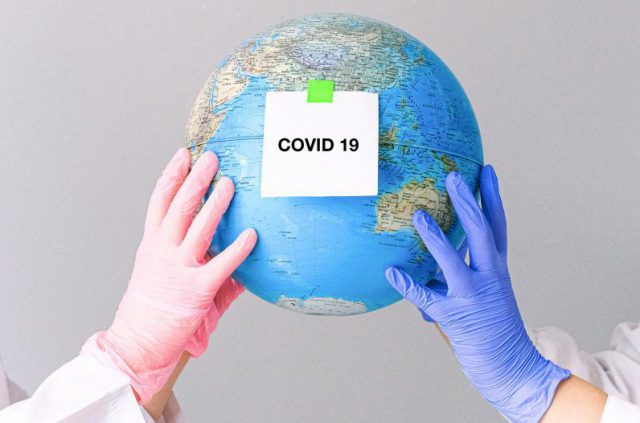Most of us Indians across the globe perhaps share a similar story at this juncture. We are in the same boat, stranded mentally if not physically. For those of us whose families are far away in India, the question that has inevitably crossed our minds is: “When will we get to go home next?”
It’s my 83rd day today, and I have been following the same ritual all these days. Every morning, I brood over a cup of coffee, wondering when this uncertainty will end and life will get back to normal. After a relaxing vacation in India, I returned to the US in mid-January, carrying home with me pleasant memories. Not in the wildest of my dreams did I ever imagine that the upcoming days would change so dramatically.
I have been stuck indoors, save for stepping out for evening walks. A few days ago, I went out for a ride with my family. We took the resolution not to get down but simply to survey how the city was functioning. An otherwise busy complex looked more like a ghost town at 6:30 in the evening. There are two pointers to this sight. The plus is that as much as we see people who defy instructions and are restless to socialize, there are responsible citizens too. In spite of the easing of restrictions, there are people who are acting mature and not venturing out unless needed. The minus is that we have come to a stage where somewhere in our hearts, fear resides, and we do not want to take chances!
Every conversation that I’ve been having with friends and relatives inevitably centers around that invisible monster that has brought the world to its knees. Many a time, we tell ourselves that we will talk about better things, but subconsciously, we come back to square one: to talk about COVID-19.
Lockdown 4.0 has ended in India, and many other countries have relaxed their restrictions too. The problem however is far from being over.
Any crisis brings out the best and worst in mankind. What has emerged in the last 2-3 months are the various shades of humanity. With whatever traces of optimistic DNA that are installed in my genes, I choose to reflect largely on the positive.
Learning the Lesson of Gratitude
The crisis, I hope, has taught human beings to practice gratitude. What, according to me, features in the very first chapter of this gratitude journal is that if we are in the pink of health, we need to value our lives more than before. Second, if we are in the list of those getting to stay with our family and dear ones, we should think that we have been showered with the most invaluable gift ever.
It’s the tendency of human beings to complain for some reason or the other. I do not remove myself from this category. But let’s count our blessings and not take things for granted. When “Stay Home” was the universal mantra and we had gotten utterly bored staying inside, we vented out our frustrations. Well, it will calm the mind and soul when we reflect that we are fortunate to have a roof over our heads and a meal to eat. I’m citing just one solitary example. Not going anywhere else, let’s simply peek into the migrant workers in India who have walked miles at a stretch in the heat and hunger. They do not even have the option to stay at home.
About 40 million people in the USA have lost their jobs in the last eight weeks, and the pandemic has brought a storm for the Indian economy too. With 122 million losing their jobs in the month of April alone, it is felt that the situation is worse than what the United States faced during the Great Depression! So anyone having that monthly check coming home should be extremely grateful rather than thinking how satisfying or not the job is!
Channeling Creativity and Family Time
It is so heartening to learn how staying at home has motivated people to discover their creative talents. Social media is flooded with people sharing the dishes they have cooked, the songs they have sung, the paintings they have done, or the poetry they have written. We may not have known earlier about our hidden potential, and this only proves that we always have the capacity to be a better version of what we are.
A friend’s daughter practiced her photography skills when she took our family picture from a distance of 6 feet away. That was so innovative!
How delightful is it to see the entire family cooking or enjoying a show together? It has been the perfect opportunity to spend time with each other if in the past everyone has been busy.
The Sad Picture
As much as we would like to believe that all is well except for the virus, it is not. We get to hear about the brutality of humans. It is shameful to to see how racism has reared its ugly head even at a time when practically all human lives are at stake. Being in the US, I’d like to refer to the death of George Floyd, a 46-year-old African American whose death has shaken the country, with nationwide protests demanding justice. It’s heartbreaking to see how with his last words “I can’t breathe”, Floyd met his end at the hands of those very people who were supposed to protect him. How can hatred and prejudice stem in a period when humanity actually needs to spread love for each other? How can the color of one’s skin put one’s life at risk?
The light at the end of the tunnel
This is the hour to rise above all differences. Human beings need to shed all grudges and be one, for our strength is in our unity. The test of humanity lies in how we conduct ourselves during these trying times. Uncertainty looms large, and no one knows when we will be over this crisis. However, adversity will not last forever, and it is hope, patience, and composure that will help us brave the storm.
I sign off on a positive note, reflecting on the powerful lyrics of a couple of songs that drive home the message of hope and victory. Composed recently by Javed Akhtar and beautifully sung by Shankar Mahadevan, it is the song Zindagi Jeetegi which emphasizes that it is life that will ultimately prevail over death.
Michael Jackson’s Heal the World, though composed long ago, is another melody totally relevant today with its message of spreading love and compassion. As the song emphasizes, there are people dying, and by caring enough for the living, we can make the world a better place for the entire human race!

Rashmi Bora Das
Rashmi Bora Das moved to the United States from India in the early nineties. She has a master’s degree in English from India. She did her second master’s in Public Administration from the University of Tennessee, Knoxville. Rashmi is a teacher with a passion for writing. Her other interests include traveling, listening to music and watching films. She lives in Atlanta, GA,





![Powerful Pride documentary Legendary Children [All Of Them Queer] streaming very soon](https://globalindianstories.org/wp-content/uploads/2025/06/Legendary-streaming-release-featured-100x75.jpg)

